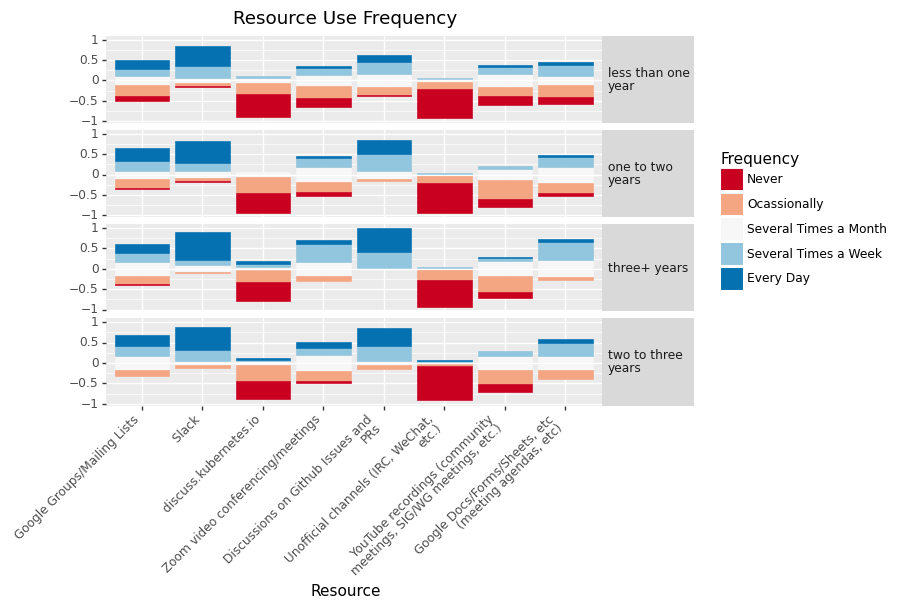How Kubernetes contributors are building a better communication process
Authors: Paris Pittman
"Perhaps we just need to use a different word. We may need to use community development or project advocacy as a word in the open source realm as opposed to marketing, and perhaps then people will realize that they need to do it." ~ )
A common way to participate in the Kubernetes contributor community is to be everywhere.
We have an active meetings that drive the project forward, and recorded code deep dives. All of this information is incredibly valuable, but it can be too much.
Keeping up with thousands of contributors can be a challenge for anyone, but this task of consuming information straight from the firehose is particularly challenging for new community members. It's no secret that the project is vast for contributors and users alike.
To paint a picture with numbers:
- 43,000 contributors
- 6,579 members in #kubernetes-dev slack channel
- 52 mailing lists (kubernetes-dev@ has thousands of members; sig-networking@ has 1000 alone)
- 40
- 30 upstream meetings this week alone
All of these numbers are only growing in scale, and with that comes the need to simplify how contributors get the information right information front-and-center.
How we got here
Kubernetes (K8s for short) communication grew out of a need for people to connect in our growing community. With the best of intentions, the community spun up channels for people to connect. This energy was part of what helped Kubernetes grow so fast, and it also had us in sprawling out far and wide. As adoption grew, .
This new attention to how the community communicates led to the discovery of a complex web of options. There were so many options, and it was a challenge for anyone to be sure they were in the right place to receive the right information. We started taking immediate action combining communication streams and thinking about how to reach out best to serve our community. We also asked for feedback from all our contributors directly via to see where folks were actually reading the news that influences their experiences here in our community.

With over 43,000 contributors, our contributor base is larger than many enterprise companies. You can imagine what it's like getting important messages across to make sure they are landing and folks are taking action.
Contributing to better communication
Think about how your company/employer solves for this kind of communication challenge. Many have done so
by building internal marketing and communication focus areas in
marketing departments. So that's what we are doing. This has also been
applied
We have hit the accelerator on an upstream marketing group under SIG
Contributor Experience and we want to tackle this challenge straight on.
We've learned in other contributor areas that creating roles for
contributors is super helpful - onboarding, breaking down work, and
ownership. Here's our team charting the course. Journey your way through our other documents like our
Many of you close to the ecosystem might be scratching your head - isn't
this what CNCF does? Yes and no. The CNCF has 40+ other projects that need to be marketed to
a countless number of different types of community members in distinct
ways and they aren't responsible for the day to day operations of their
projects. They absolutely do partner with us to highlight what we need
and when we need it, and they do a fantastic job of it (one example is
the
Where this group differs is in its scope: we are entirely
focused on elevating the hard work being done throughout the Kubernetes
community by its contributors. You can expect to see us on the Kubernetes
What does this look like in the wild? Our .What to expect from us